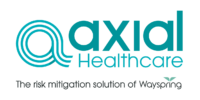At a time when COVID-19 was cutting lives short across the country, another pandemic was unfolding. Between July 2019 and July 2020, nearly 84,000 Americans died from accidental drug overdoses. That’s the highest number of overdose deaths ever recorded in a single year, according to the Centers for Disease Control and Prevention. Compare it to the 12 month period ending in July 2019, when more than 68,000 Americans died.
Isolation has taken a toll
The pandemic has exacerbated substance use disorders, says Caesar DeLeo, MD, Vice President and Executive Medical Director, Strategic Initiatives at Highmark Blue Cross Blue Shield, for several reasons. One is the fact that the pandemic has led to social isolation. “Social connectedness,” says DeLeo, is essential for recovery from addiction. “When people are connected to communities, they do much better.” Isolation can also be deadly for those who use opioids. “If you’re using opioids alone,” says DeLeo, “no one is there to administer naloxone, the opioid rescue drug.” There are more reasons why overdose deaths have gone up, but it’s worth touching on one more: the accessibility of treatment. The pandemic may have kept people from seeking treatment in person.
Personalized treatment, with peer recovery support
DeLeo says Highmark rolled out an enhanced substance use recovery program to try to attract and keep more patients in treatment. In collaboration with axialHealthcare, Highmark’s approach includes key evidence-based elements:
- Peer recovery specialists. When a patient finishes treatment, peer recovery specialists are on hand to help them transition. Peer recovery specialists are in recovery themselves. They establish relationships with patients to help them navigate the ups and downs of recovery. And they’re trained and overseen by clinicians.
- A personal plan. Each patient has a dedicated care team, including treatment providers and staff who can connect patients to community resources like housing or food. Before patients complete treatment, care teams make sure they understand their plan of care, have medication refills and establish a schedule for regular follow ups to support their recovery.
- Easy access to support. Telemedicine has expanded access to addiction treatment during the pandemic. Highmark members with opioid use disorder can be prescribed medication assisted treatment through telemedicine, a service that has often only been offered in person. Beyond telemedicine, the program lets patients get in touch with providers 24 hours a day via secure text messaging. If a patient is in crisis, that responsiveness can be critical.
Overdose and substance use disorder prevention remains a priority
While treatment is essential, preventing overdose deaths and the development of substance use disorders is just as important. DeLeo says Highmark and axialHealthcare have decreased the number of patients receiving opioids from multiple providers by 15.0%, reduced risky co-prescribing of benzodiazepines and opioids by 15.1% and increased naloxone (the opioid overdose rescue drug) prescribing by 100% in just two years. If a Highmark member is treated for a non-fatal overdose, the health plan’s case managers reach out and offer to connect the member with treatment.
Removing more barriers to treatment
DeLeo says Highmark has pulled out all the stops to tackle opioid use disorder. The health plan has sent clinicians into doctors’ offices to provide feedback on their prescribing and education on safe opioid prescribing (called “academic detailing”). Patients no longer have to seek prior authorization before receiving a prescription for medication assisted treatment, and it has removed patient co-pays for in-person treatment. DeLeo says the organization is also working with law enforcement to keep ahead of trends and contributing millions to support regional substance use programs.
He says that as the COVID-19 pandemic winds down, healthcare providers, communities and families will need to stay connected and vigilant to ensure the twin pandemic of overdose deaths ends, too.
Highmark Blue Cross Blue Shield is a licensee of the Blue Cross Blue Shield Association, an association of independent, locally owned and operated Blue Cross and Blue Shield Companies.
axialHealthcare connects patients, providers, and health plans with an end-to-end platform that covers the entire substance use spectrum. Leveraging services grounded in analytics, our risk to recovery platform identifies patients at risk, prevents escalation in their condition, and supports appropriate treatment enrollment and adherence. This analytically driven community-based approach delivers measurable clinical and financial outcomes by effectively managing cost of care while supporting sustained recovery for patients with substance use disorder.
